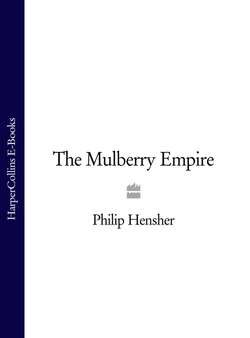Читать книгу The Mulberry Empire - Philip Hensher - Страница 8
TWO 1.
Оглавление‘EMPEROR OF THE AFGHANS,’ Burnes chanted, ‘Lord of the most distant horizon, King of the far hills, Heir of Israel, Lord of the Wind of a Hundred, of a Hundred, of a Hundred—’
He opened his eyes, and made a deflating noise. ‘Ppphhhhhwah,’ he said. ‘I always get stuck there.’
Outside, in the courtyard, a fight was breaking out between a gang of boys; the sudden close yelling was like a flock of geese, diving over the roofs of the mud-brick house. Burnes knocked his fist against his forehead, as if pretending to think. Dr Gerard got up from the corner of the room where he had been squatting, awkward as a camel, and went to the shutters to see what, if anything, the fight outside was about.
‘Very good,’ Mohan Lal said smoothly. ‘Your Persian is really excellent, if I may say so.’
There was an embarrassed sort of silence, since Mohan Lal, naturally, ought not to say so. Certainly, it was not for him to tell Burnes whether his Persian was good or not. Still, he seemed to take it upon himself not just to compliment his betters, but, on occasion, to correct them. Anywhere else, of course – but this was not anywhere else, and, knowing that all of them had to rely on Mohan Lal’s goodwill, the party had taken a tacit decision to put up with the guide’s elegant superiority, perpetually bordering on the supercilious.
‘What is it, anyway?’ Burnes said finally. ‘I can’t remember. I’m sorry.’
‘Lord of the Wind of a Hundred and Twenty Days,’ Mohan Lal said, smiling faintly, as if giving a child the answer to a terribly obvious Christmas puzzle. ‘An interesting title. The Wind of a Hundred and Twenty Days is a summer wind, a phenomenon fascinating in the abstract, although not something one would wish to experience. It is regarded as a unique property of the kingdom, and therefore an appropriate title for the Amir.’
‘Not something I’d want to boast about,’ Dr Gerard said, turning back to the room, disappointed in the small drama of the courtyard outside. ‘And I hope we’re not here long enough to have to put up with it.’
‘If he keeps us waiting here long enough,’ Burnes said, ‘we may simply have to grit our teeth and endure.’
Outside, Kabul continued its usual life.
Burnes found it hard to be quite sure whether, here, they were prisoners or not. Ten days before, they had arrived at the gates of the city – or what passed for the gates, a waist-high mud wall full of holes. An inadequate rampart, one might have thought, but the Afghans came and went quite happily, as if never fearing an enemy, giving no thought to invaders or infidel. Until now, Burnes had remained swathed in his cloth, blanketed up, his face browned first by colouring and after by the weeks trekking in the mountain sun, his blue eyes becoming more startling by the day. Arriving at Kabul, however, it seemed wise to admit to what they were immediately, and take their chances.
Kabul had surprised Burnes. He had read what there was to read about the country, looked with every appearance of care at the drawings, the prints of the city. They hadn’t been wrong, exactly; but still the city was not what he expected. No commentator, no artist, had captured what Burnes saw; it was as if they had seen only the outlines of the city, or rather, as if they, like Burnes, had seen it whole, and only cared to convey the city in part. Burnes tried to think of what it was his guides had left out. He could only think of it in two words: the fragrance; the filth.
In other cities, the fruit-and-flower smell of the street, the stench of the shit, human, canine, equine and more, would have seemed the inessentials of the city’s life. It had seemed like that to the observers of the city whose work they had so relied upon; they had removed the fragrance and the filth from their gaze as lying above or below what substance truly mattered. Buildings, thoroughfares, population numbers could be set down, and that was what, it seemed, really counted; not the mere smells of this city. It seemed always in danger of turning into an orchard, a stable, or a vast latrine. To Burnes, on the other hand, it was the intangible but overpowering fact of smell which seemed central to the place. Sitting in this half-prison, with all the time in the world to practise the address to the Amir and pursue absurd speculations, he found himself wondering about a map of the city which would convey this sense of his. In his head was a map of Kabul which did not describe the streets and the buildings, but set down the intangible and rich sudden odours of the place; described where a whiff of horse-shit mingled with the heavy perfume of rotting mulberries, where dead dog and fruit blossom competed. He closed his eyes, and there, in his head, was a weighty flush of sensation, a wave like the colour purple, arriving in his head, foreign, uninvited, irresistible. You did not need to walk the streets to map them in this olfactory manner; you only needed to sit by the window, and wait for a breeze. He had seen nothing of the city, in truth, nothing but a few streets as they had arrived, nothing but the few buildings around the house where they now lived, when their guards occasionally escorted them out. The city came to them, its perfumes carried on the wind.
